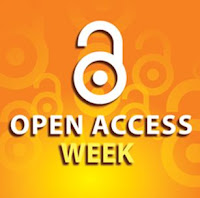Monday, October 22, 2012
CRISIS!
[Disclaimer: The publishing company mentioned in this post and its respective content are fictional.]
Imagine that you have a research paper due in a couple of weeks. You have already done some preliminary research by scanning through a few abstracts online in order to come up with a decent topic. As you look through the abstracts, and maybe a few of the more relevant articles, you are ready to submit your topic. Later, you embark on your quest for relevant research in order to start writing. You’re fully equipped with a computer screen and a cup of coffee. As you read through the articles and abstracts, you begin to develop new ideas and start to think about how you want to construct your argument. This leads to the need for more specific research in a pool of relevant and semi-relevant articles that you have accumulated through a few hours of diligent burrowing through GALILEO and Google Scholar. But wait, you read an abstract that illuminates the figurative light bulb directly above your cranium. There it is…the article that will provide essential support for your main argument. Click. Excitement turns sour when you are redirected to a link to a traditional publishing site: “Welcome to The Far-Too-Expensive Publishers, Inc. website, where we are happy to charge you out the nose in order for you to access scholarly content!” You locate the link to the article that will be the source of the crux of your central argument, and potentially your paper’s salvation, under a muddle of pop-ups that encourage you to sign up for a 30-day trial of the journal for a very “reasonable” fee. You are disappointed to learn that you can purchase the article (and thus, have access to it), for only $43.99. Disgusted, you look click the “Find It” tab below that article in GALILEO to see if the article is available anywhere else in any other journal or database. Negative. You quickly think to use InterLibrary Loan but then realize that there might not be enough time to procure the article before the paper is due. You try to find an article that is similar, and you find some interesting points that are useful to your research, but are nothing compared to the content in the elusive article shackled with the expensive ball and chain of traditional publishing.
This is but one example of the crisis of scholarly communication. A student denied access to an article for a research paper is bad enough. However, imagine this scenario applied to professionals. For example, if healthcare professionals cannot have access to updated scholarly information pertinent to their field, they cannot do their jobs effectively, and the same goes for any working professionals who conduct research on a regular basis. This affects anyone with any reason for learning, whether it is for professional or personal development.
What can we do about this? Open Access is the answer. Scholarly material that is open access is that which is available to all viewers and users. As opposed to traditional publishing, which charges users for access, open access is free for everyone’s use. This week is Open Access Week! Ask a Librarian today about how you can get involved to promote and support open access on your campus!
Guest Blogger: Charlotte Davis, CSU Student

